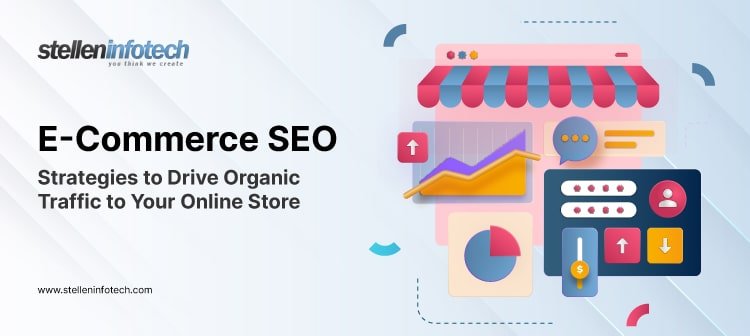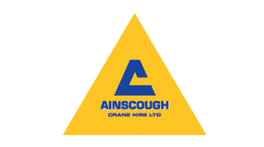In the eCommerce industry, a company’s ability to drive organic traffic is essential to its success. There are several tactics like social media marketing, paid ads, and more to increase the sales possibilities. But the significance and efficacy of SEO to drive the organic traffic to the online stores can not be overlooked. Also, there is a wider range of companies providing professional SEO services to digital businesses in need.
- According to HubSpot, 70-80% of visitors to a website prioritize organic results.
- Also, BrightEdge’s report says 51% of website traffic comes from organic traffic accompanying 10% of visitors from paid searches, and social media delivers 5% of users.
These stats simply says in the favor of implementing SEO tactics to help marketers set their eCommerce business on track.
No matter it is a small enterprise or a medium online business, both of them need to reach a wider audience. Here, investing efforts in eCommerce SEO without wasting money on paid ads and other tactics is a great way to bring in more sales.
Simply put, search engine optimization helps businesses increase their visibility on Google SERPs. Here, putting efforts into eCommerce SEO strategies can support the brand rank well. Thus, helping in acquiring increased leads and conversions. After all, every online shop strives to increase the ROI.
While there are SEO tactics that help improve brand recognition and exposure in addition to acquiring organic traffic. Besides, you can hire a reputable eCommerce SEO agency that provides result-driven and qualitative services. Thus, increasing your sales and return on investment.
Are you also failing to rank your eCommerce goods on the Google SERPs? Of course, the reason is you are not able to acquire the expected conversions and sales. Luckily, all these practices given below can help you climb the rankings and even stay on the top.
Best eCommerce SEO Practices to Gain Organic Traffic to Online Store
Keyword Research is the Priority
Keyword research means recognizing the phrases or words that users use to search for content relevant to our eCommerce products or store. In addition, when you know the exact keywords to target, putting in the best efforts for store optimization becomes easy.
Now, you might be wondering how to find keywords?
You can use Google’s automatic suggestions here. There’s also a function called “people also ask.” These will give you helpful hints about the most popular terms. It will also provide a clear image of successful competitors, as well as the strategies they employ.
Besides the terms, you will see that most of the keyword suggestions will be long-tail. Remember, these are less competitive. You can use the tools like Keyword Explorer, Ahrefs, Keyword Planner, etc. to get started.
Keep in mind, though, that getting organic visitors will necessitate more than simply researching goods-related keywords. Additionally, target the terms that consumers use when researching your niche.
Research About Competitor’s SEO Efforts
The eCommerce industry is fiercely competitive. It does, however, come with several opportunities to learn from other businesses. This necessitates integrating and studying the SEO techniques of competitors.
- The Keyword Gap Analysis tool is the most effective of all the strategies. It assists in the identification of highly ranked terms for your competitor’s eCommerce business. You can also check and see if any keywords are relevant to your business.
- Focus on phrases or words where the competitors surpass you by a noticeable margin for the best outcomes. If you can improve your ranks for such relevant and high-performing keywords, your online store’s rankings will undoubtedly improve. As a result, traffic inflow and conversions will enhance. It also increases your chances of remaining ahead of the competition.
- Another effective method is to identify the content that has assisted the competitors in generating a large number of backlinks. Remember that the links from third-party websites play an important role in boosting search engine rankings.
Product Page Optimization is Essential
The next thing is to optimize the eCommerce site for keywords with high sales intent. It will help the specific product pages rank on the top of the SERPs and make customers find the results in organic searches.
- Simply start by checking over the product descriptions in each of your eCommerce stores.
- Make sure your descriptions are concise and easy to understand.
- Include your main keywords in the title tags, heading tags, and product descriptions.
- Use the keywords in the alt text of photographs when publishing them.
- Keep meta descriptions to 155 characters or less.
However, don’t just insert keywords wherever that doesn’t make sense. Simply put, write what is important, clear, and communicative. After all, you want both the search engines and the users to read and recognize your offerings. Thus, product page SEO can drive traffic.
Implement a Secure Site Structure
The next stage is to put your knowledge into practice once you’ve determined which keywords will help you reach your target audience. When it comes to the structure of the website, there are a few things to consider. Setting up category pages, usability, and product pages is all part of the eCommerce site structure. Overall, the goal is to give consumers the most relevant information while reducing the number of times they have to click to find it.
The two simple rules make the site structure great. It includes:
- Maintain a scalable and straightforward framework.
- Make sure that no page asks for more than three clicks to access the information required.
To develop appropriate page URLs and subdirectories, simply conduct keyword research.
Prioritize Site Speed and Uptime
Speed is a must-have factor to be considered when optimizing the eCommerce store. This is because as the webpage load time rises, the bounce rate increases considerably.
All the above-shared tips will work wonders in gaining huge traffic to the online shop via keywords, content, and SEO. However, if you don’t have a working website, all of your efforts will be zero. Furthermore, if Google observes that consumers are clicking on the posts on search engines but instantly leaving, the content will not rank.
Here, the best you can do is use the PageSpeed Insights Tool by Google. It will assist in determining how effectively the store functions on mobile and desktop platforms. In case it takes more than 3 seconds to load, the tool will provide the best practices and essential steps to improve it.
Summing Up
To summarize, eCommerce SEO is excellent in bringing potential customers to your website. However, your efforts will be fruitless unless you fill the site with high-quality, SEO-based material that will attract the best clients.
All in all, implementing SEO strategies for eCommerce store performance is essential to delivering a memorable user experience. Thus, turning one-time shoppers into loyal ones.
So, what are you waiting for? Get started with these proven tips and make the most out of your digital store.
You can also hire professional eCommerce SEO services from Stellen Infotech. Right from the local SEO to eCommerce SEO and enterprise SEO services, it brings to the table a wide range of offerings. Also, our team of experts possesses extensive experience in helping the company boost its sales and improve the site’s SERP rankings.






















































